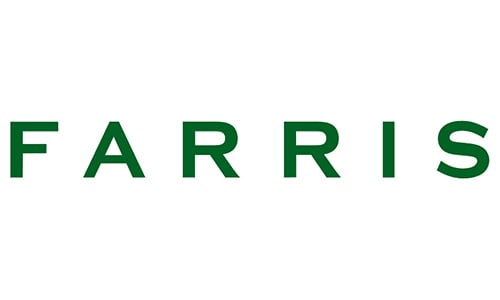1. British Columbia is often seen as a plaintiff-friendly jurisdiction for class actions. Why is that? What is different in BC’s Class Proceedings Act than in similar acts across the country?
There are two main reasons British Columbia is seen – and increasingly so – as a plaintiff-friendly jurisdiction.
First, BC is a “no costs” class action jurisdiction. Under BC’s Class Proceedings Act, R.S.B.C. 1996, c. 50 (“CPA”), neither the BC Supreme Court nor the Court of Appeal for British Columbia may award costs to any party in respect of an application for certification or at any stage of a certified class proceeding, except in certain limited cases. These exceptions only apply, pursuant to section 37(2) of the BC CPA if there has been vexatious, frivolous or abusive conduct; an improper or unnecessary application or other step has been taken for the purpose of delay or increasing costs or other improper purpose; or if there are other exceptional circumstances the court considers make it unjust to deprive the successful party of costs.
In practice, cost awards are seldom made under these exceptions in the CPA. This is beneficial for representative plaintiffs in BC and their counsel as it allows intended class proceedings to be commenced and pursued without the risk of a significant adverse costs award. A number of other Canadian jurisdictions, Ontario and Alberta for example, follow the ordinary ‘costs follow the event’ model (i.e. “loser pays”), meaning that an unsuccessful certification application or common issues trial could result in a substantial adverse costs award against the representative plaintiff.
Second, BC amended the CPA in 2018 to allow for certification of “multi‑jurisdictional class proceedings” on an opt-out basis. This means that a representative plaintiff in BC can seek and obtain a national certification order in the BC courts, which would be applicable to class members resident across Canada unless they take steps to opt-out of the proceeding following notice of certification. Prior to the statutory amendment, BC plaintiffs could only pursue national class actions that would be applicable to class members outside of BC that positively opted-in to the proceeding.
Other Canadian jurisdictions, again Ontario is an example, have long allowed for certification of national opt-out class proceedings. Given the general nature of take-up rates in class proceedings, this meant that representative plaintiffs in BC seeking to pursue a national scope class proceeding previously were at a disadvantage as the class size would inevitably be smaller than an equivalent class proceeding pursued in a national opt-out jurisdiction like Ontario. The 2018 amendments to the CPA eliminated this disadvantage and have made British Columbia a more plaintiff-friendly jurisdiction for class proceedings as a result.
2. How does the language in BC’s consumer protection legislation (the Business Practices and Consumer Protection Act) and the federal Competition Act open the door to a wide variety of claims?
Both the BC Business Practices and Consumer Protection Act (“BPCPA”) and the federal Competition Act have been a fertile source of claims in class proceedings. Both statutes contain provisions that regulate how businesses and suppliers advertise and market goods and services and related statutory causes of action. The BPCPA, which only applies to consumer claims, contains detailed provisions in section 4 that prohibit a variety of “deceptive acts or practices” made by suppliers in relation to consumer transactions. The Competition Act has a similar form of prohibition, in section 52, on false or misleading representations made for the purposes of promoting the supply or use of a product or service or any business interest. Notably, the Competition Act is not restricted to consumer claims, so a class asserting claims under the Competition Act need not be limited to those members that acquired goods or services for primarily personal, family, or household use.
In addition to statutory misrepresentation claims, the Competition Act’s prohibition, at section 45, on conspiracies or agreements among competitors to fix the price for products or services has also been the basis for numerous class proceedings in BC and across Canada.
These statute-based claims are not all smooth-sailing for representative plaintiffs, however. The statutory causes of action in both the BPCPA, at sections 171-172 and the Competition Act, at section 36, have a form of causation element that can be problematic for class certification depending on the circumstances. The meaning and application of these causation elements, and whether they give rise to an overwhelming scope of individual issues, has been the subject of much certification litigation.
In addition, for businesses and suppliers that include arbitration clauses in their contracts, the courts have determined that claims for statutory damages in section 171 of the BPCPA and section 36 of the Competition Act are susceptible to stays of proceedings under BC arbitration legislation. On the other hand, the Supreme Court of Canada, in Seidel v. TELUS Communications Inc., 2011 SCC 15, held that the public interest form of remedy in section 172 of the BPCPA is not a claim that should be stayed in favour of arbitration.
3. One of the unique things in BC’s Class Proceedings Act is the requirement that defendants and plaintiffs must file affidavits that
a. set out in the affidavit the material facts on which the person intends to rely at the hearing of the application;
b. swear that the person knows of no fact material to the application that has not been disclosed in the person's affidavit or in any affidavits previously filed in the proceeding; and
c. provide the person's best information on the number of members in the proposed class.
First, could you unpack that?
These requirements for affidavit evidence filed in respect of a class certification application in the BC Supreme Court are set out in section 5(5) of the CPA. The requirement in section 5(5)(b) for affiants to swear that they know of no fact material to the application that has not been disclosed is unique to BC and is a somewhat unusual provision considering the adversarial context of a certification application.
As referenced above, this provision means that all parties to a certification application, representative plaintiffs and defendants, have to positively certify in a sworn affidavit that all material facts relevant to the certification criteria have been disclosed either in that affidavit or other affidavits filed in the proceeding. The BC courts have confirmed that this requirement applies to corporate parties as well governmental entities. The BC Court of Appeal, in a recent decision, did emphasize that the requirement is for each party only to verify that all facts “material to the application” have been disclosed, and that this must be understood by reference to the scope of the certification hearing which is about the form of action and not the merits of the underlying claim (Mentor Worldwide LLC v. Bosco, 2023 BCCA 127 at para. 76).
What has this meant for your cases? It seems like this would highly favour the plaintiff. Is that the case? Can you provide examples?
Generally speaking, the requirement is of greater benefit to the representative plaintiff. This is so because there will typically be a significant imbalance in favour of defendants in terms of access to relevant facts and evidence regarding the claims in issue at the certification stage where discovery processes are usually quite limited. Further, as Justice Ward Branch noted, writing extrajudicially in Class Actions in Canada, the statutory requirement in BC means that the affiant for the party opposing certification may not conceal those facts that would tend to show that certification is preferable.
In practice, there are limited examples where defendants have suffered consequences at certification as a result of failure to provide the necessary affirmation in responding affidavits. One example is Cantlie v. Canadian Heating Products Inc., 2017 BCSC 286, where the Court determined that where the defendants relied on their own affidavits to attempt to rebut the plaintiffs’ established basis in fact, the defendants’ evidence would be given less weight as it was unclear if there were other materials in the defendants’ knowledge that were not included in the affidavits.
The section 5(5) requirement has not always been used to the benefit of the representative plaintiff, however. In a recent decision, British Columbia v. Apotex Inc., 2022 BCSC 1383, the Court ordered the representative plaintiff to file an additional affidavit that complied with the requirement in section 5(5) within 60 days. The Court rejected the suggestion that the non-compliance could or should be left for the certification judge to address as appropriate at the certification application hearing itself.
In another case, Kett v. Mitsubishi Materials Corporation, 2020 BCSC 1879, Justice Branch referred to section 5(5) in addressing a representative plaintiff’s potential conflict of interest. The fact that the representative plaintiff had not disclosed the potential conflict in affidavit evidence despite the requirement in section 5(5) of the CPA was noted to be a “problematic aspect” in the Court’s evaluation of the adequacy of the plaintiff to represent the class. Justice Branch also commented that the failure to disclose the potential conflict despite section 5(5) did “not reflect well on class counsel, and the suitability of counsel is a factor in assessing the suitability of the representative”.
4. What are some things that would prevent certification?
BC’s CPA, like class proceedings legislation applicable in the balance of common-law Canada, contains five general requirements that a representative plaintiff must satisfy for the Court to grant class certification: (i) the pleadings disclose a cause of action; (ii) there is an identifiable class of two or more persons; (iii) the claims raise common, but not necessarily identical issues of fact or law; (iv) a class proceeding would be the preferable procedure for the fair and efficient resolution of the common issues; and (v) there is an adequate representative plaintiff. Failure to establish any of these certification criteria will prevent the plaintiff’s claim being certified as a class proceeding
In practice, defending certification can be challenging because the first requirement (cause of action) is evaluated on the very low standard of whether, assuming the pleaded facts are true, it is “plain and obvious” the claim cannot succeed; and, the balance of the certification requirements are evaluated on a low evidentiary standard of whether there is “some basis in fact” to satisfy each element. The courts have repeatedly emphasized that certification is not intended to evaluate the merits of the representative plaintiff’s claims.
Which particular area(s) of the certification application will be most susceptible to challenge is highly contextual depending on the nature of the claims in issue and the substance of the plaintiff’s certification record. Generally speaking, the cause of action and the common issues criteria can often be the most contentious. While the standard for the pleadings to disclose a cause of action is a low one, the BC Court of Appeal has emphasized in class proceedings that is not surmounted in all cases and that it is beneficial to all concerned, including the justice system, if unsettled legal questions are directly addressed when raised at an early stage, rather than being left for a trial that may never take place. The Supreme Court of Canada’s recent decision in Atlantic Lottery Corp. Inc. v. Babstock, 2020 SCC 19, is an example where certification was ultimately dismissed because a previously unsettled matter of law concerning “waiver of tort” was decided in favour of the defendants with the result that the plaintiff’s claim did not disclose a cause of action and could not be certified.
***
 Nick Hooge is a Partner in Farris’ litigation group. He has a general litigation practice and has appeared in all levels of court in British Columbia, as well as in the Federal Courts, the Ontario Superior Court and the Supreme Court of Canada. Nick has experience in a wide range of complex civil and commercial matters including contract disputes, product liability claims, real property litigation, corporate and securities law, administrative law, competition & antitrust, and taxation litigation. He regularly acts as defence counsel in class actions litigation.
Nick Hooge is a Partner in Farris’ litigation group. He has a general litigation practice and has appeared in all levels of court in British Columbia, as well as in the Federal Courts, the Ontario Superior Court and the Supreme Court of Canada. Nick has experience in a wide range of complex civil and commercial matters including contract disputes, product liability claims, real property litigation, corporate and securities law, administrative law, competition & antitrust, and taxation litigation. He regularly acts as defence counsel in class actions litigation.





